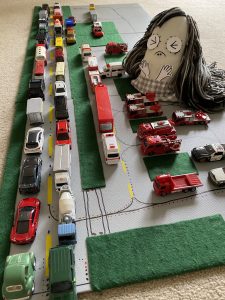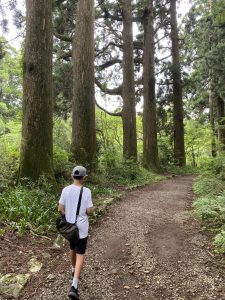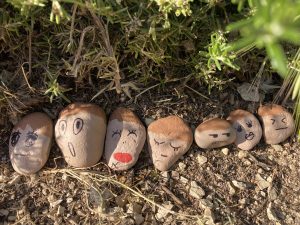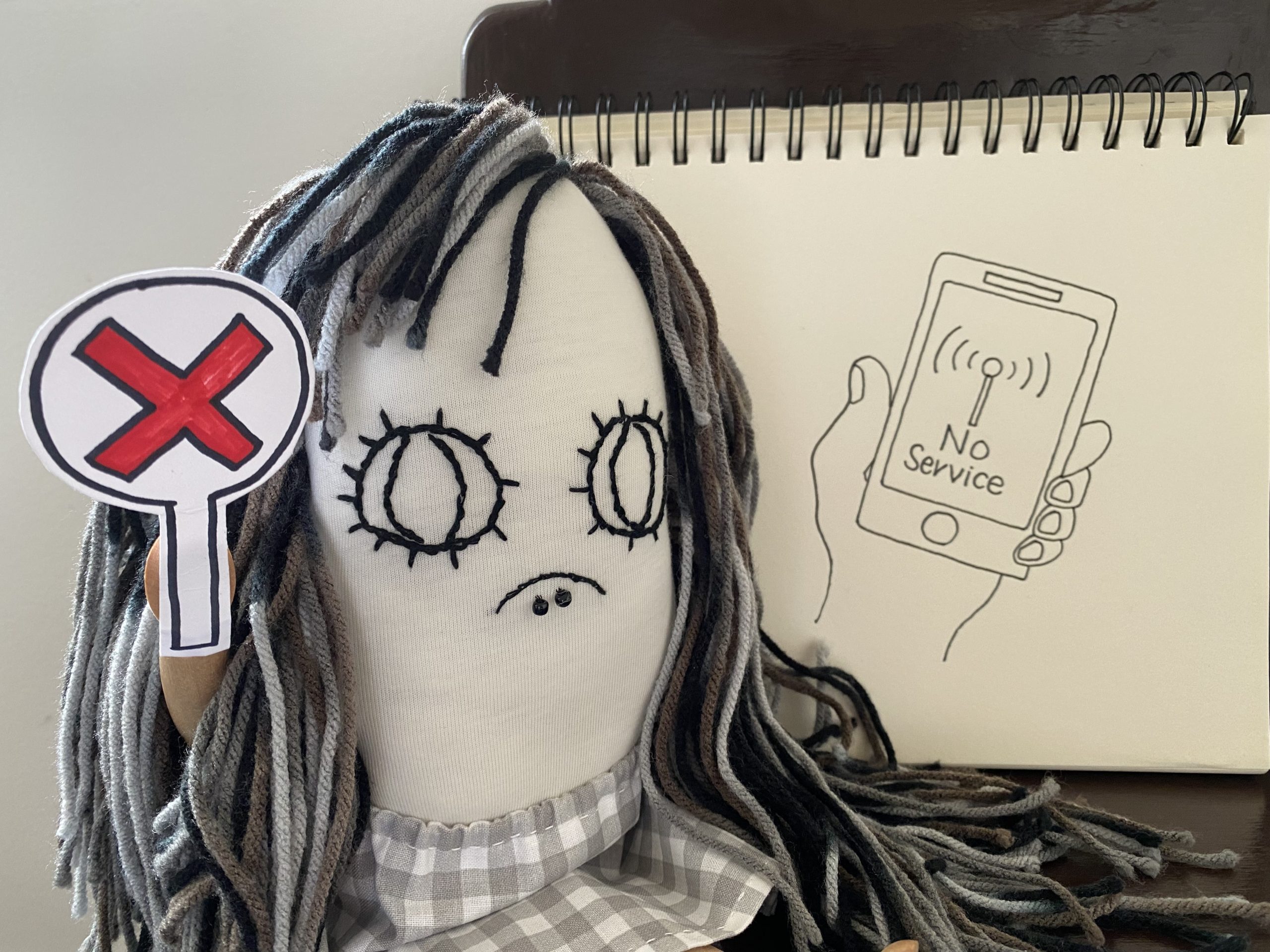How to contact your family in an emergency?
“I don’t know whether or not my kids can find their way back home… or even if they know our home address…”
“I always pick up and drop off my kids by car. I don’t think they know the way home.”
“My parents’ house is far away from my place. It’s an 8 hour drive. That’s a long time if they need help!”
Preparing for emergencies, you always have to consider living without electricity. You know, if the power grid goes down, everybody will panic. Scary, right? Have you ever thought about how much we rely on electricity? If there is a major crisis, and the power goes out, it will be too late at that point to do much about it. You might  expect that you’ll be able to use your cellphone and the internet in the middle of an emergency, but in reality, all of that technology could fail. It might fail because the circuits and servers are overloaded by the high demand and extreme traffic, or it might fail because the physical infrastructure is damaged or offline. If we’re lucky, we’ll be able to use cellphones a few hours or days after an emergency, but there’s no guarantee. If the cell towers are without power, or damaged, the cell phones won’t be able to make any calls. It’s also possible that the government will place restrictions on cellphone use to try to ensure high priority calls will still go through.
expect that you’ll be able to use your cellphone and the internet in the middle of an emergency, but in reality, all of that technology could fail. It might fail because the circuits and servers are overloaded by the high demand and extreme traffic, or it might fail because the physical infrastructure is damaged or offline. If we’re lucky, we’ll be able to use cellphones a few hours or days after an emergency, but there’s no guarantee. If the cell towers are without power, or damaged, the cell phones won’t be able to make any calls. It’s also possible that the government will place restrictions on cellphone use to try to ensure high priority calls will still go through.
Using a car also might be risky. When the power goes out, so do the traffic signals. When everyone jumps in their cars to evacuate, all at the same time, you end up with massive traffic jams. If you choose to use your car, be prepared to sit in heavy traffic, for a long time. You should have a plan to evacuate without a car, just to be on the safe side. Don’t count on trains, busses, airplanes, or boats, either.
Things to consider:
- Does everyone in your family have a cellphone? And does everybody know how to use it? (How to send messages, use maps, navigate, input passwords etc.)
- Do you have a home phone which does not require a dedicated electrical outlet? (Your old landline phone might still work, even when the power goes out.)
- Does everyone in your family know the phone numbers of every other family member? (At a bare minimum, everyone should know at least one person’s phone number. If they lose their phone, or if they lose the piece of paper their numbers are written on, they will still be able to get in touch with someone.)
- Do you know where there is a public phone in your area? And do you have any spare change? (Nowadays, it’s shockingly difficult to find payphones, so it would be better to look for one in advance, and try to use it to make sure it works.)
- Do you know for sure that everyone in your family knows their way home from school and work? (If they use a car all the time, your kids might not know the safest route home, or even the general direction. And if your kids go to school outside of your city, you need to consider whether or not it’s even realistically possible for them to make it home on foot.)
- If you have small kids, do they know your home address? Can they read a map? Or explain either what neighborhood they live in, or what landmarks are nearby? (Middle and high school students, generally, should be able to make it back home, in an emergency, by themselves. If their smartphone isn’t working, can they still find their way home?)
- If you have old parents, can they evacuate by themselves? If so, how?
- Do you have comfortable shoes, handy? Shoes you could walk in for long distances? Your family, too? (If you love high heels… how far can you walk in them? In a disaster area?)
My recommendations:
- If your cellphone and/or computer are functioning, have power, and are connected; use the internet to communicate through email and social media networks. Sometimes text messages will work, when other modes of communication don’t, because texts require less bandwidth.
- Always carry small coins to use public phones in an emergency. Payphones might continue to work, because these phones don’t rely on electricity or mobile networks. Please, pay attention to the locations of public phones near you, when you are walking outside. Maybe let your kids use a payphone. They might not know how to use one, and they may not have ever even seen one. (My kids didn’t know how to use the landline, pushbutton phone at their grandmother’s house.)
- Make copies of your family’s information, one for each family member, to carry in their backpack, wallet, purse, etc. And keep one copy at home.
- It would be good to keep an extra full battery or solar charger. (Bear in mind, if you do have an extra power source, but your other family members do not, then it still might be difficult to get through.)
- Wear your comfortable shoes all the time, if possible. Or at least put extra, comfy shoes in your car or office, so that you’re ready.
- Read the FEMA website (Ready.gov). They have some good recommendations. (Their advice applies even if you live outside of the United States.)
- After a disaster, if you can’t contact your elderly loved ones quickly, plan to send someone for a welfare check. (Their neighbors or friends, etc.)
Make copies of your family’s information, one for each family member, to carry in their backpack, wallet, purse, etc. And keep one copy at home.
When you live through a big earthquake, one of the first things you want to do is check on your family, to make sure they are OK. But it will not always be smooth and easy to reach out to your whole family, especially without electricity. I strongly recommend that you decide on a meeting place with your family. If lines of communication are down, you can all meet up at the designated spot. Also, have everybody memorize your family’s emergency communication plan. This is what I have done with my family so far. We are still panning; it’s a work in progress.
 Come back home first. If home is gone, go to step 2.
Come back home first. If home is gone, go to step 2.- Check the elementary school at noon, every day, and look for the rest of the family. If the school is gone, go to step 3. (Use the sun as your clock. The meeting time of noon is easy to figure out, even for kids. You can teach your kids about the sun and noon as a mini science lesson.)
- Check our middle school at noon, every day. If the middle school is gone, go to step 4.
- Go to the park, in the mountains, where we always go hiking. (If the disaster is a biggie, our home town might not be there afterward. We might need to meet far away from home.) Go there every Monday. If this park isn’t there anymore, or isn’t safe, then go to step 5.
- Go to park #2, every Wednesday. If park #2 isn’t there, or isn’t safe, go to step 6.
- Go to park #3, every Friday. If park #3 is not there, or isn’t safe, go to step 7.
- Finally, we have the address of a friend’s home, in another city. Go there. (In a disaster situation, if you have friends or family living outside of town, who can help take care of your family, it will be good.)
Of course, if our cellphones work, we’ll simply contact one another and then meet up. This plan is for situations where the phones and internet don’t work anymore, and they don’t come back online for some time. I hope we never need to use this plan, but it’s better to be prepared, just in case.
We have a grandmother who lives in another state. We told her that if we can’t reach her on the phone, and she can not stay at her home, we will try to meet her at the park near her house, on the first Monday of every month, at noon. My siblings are in Japan. I told them to meet at their house, on May 5, at noon, every year. Family members living far away might need extra time to get each meeting place. Set up a date to meet them, and after a major disaster, repeatedly visit that spot. It would take nothing short of a global cataclysm, on a biblical scale, for these contingency plans to be needed. A catastrophe on that scale seems unlikely, but it’s not impossible. After an apocalypse, without a plan, it could be impossible to find your loved ones. With a plan, you will at least have hope. I wish for a quick recovery in all emergency areas, I hope everyone finds their loved ones, and that everyone stays safe.

I think everybody wants to stay together with their own family, during emergencies. Let’s expect the best but prepare for the worst.
See you next time.
